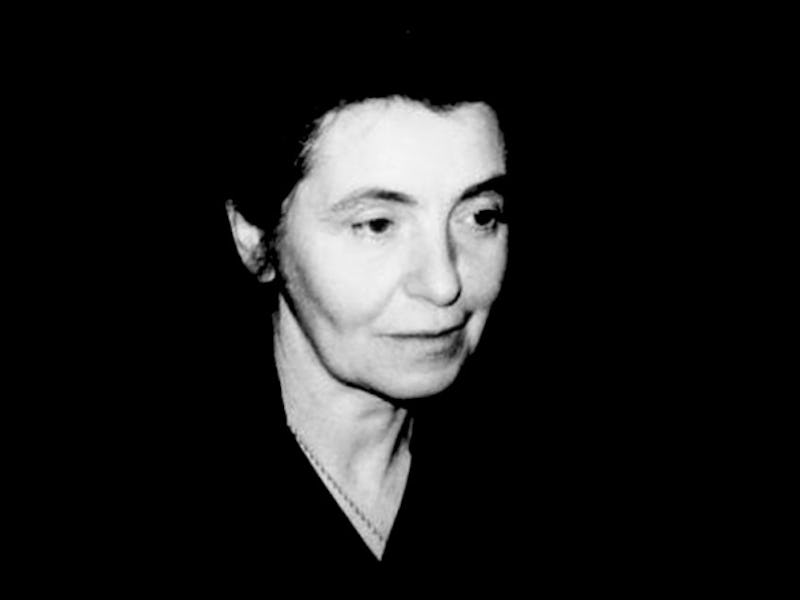Olga Ladyzhenskaya: Genius Mathematician Was a Rebel in Soviet Russia
"There were few things that did not touch her; she reacted keenly to any injustice."

On Thursday, Google Doodle celebrated premier mathematician Olga Ladyzhenskaya on what would have been her 97th birthday. Born in the small town of Kologriv in northern Russia, Ladyzhenskaya overcame tremendous hardships in her youth to become a distinguished and influential scholar who was both ostracized and celebrated by her country. When she died in 2004, her peers remembered her as a rebel — and one that was treated as such by the Soviet government.
Ladyzhenskaya’s rebelliousness was ignited by an event outside her control. She was taught mathematics by her father Alexander Ivanovich, who was descended from Russian nobility. In October 1937, when she was just 15, her father was arrested and killed by the Soviet People’s Commissariat for Internal affairs, or NKVD — a forerunner of the KGB. It wasn’t until 1956 that her father was officially exonerated “due to the absence of a corpus delicit,” or concrete evidence of a crime. At the time of his death, Ladyzhenskaya was told that her father was an enemy of the state.
Because of her father’s status, Ladyzhenskaya was refused admittance to Leningrad State University, despite her mathematical brilliance. Undeterred, she took over her father’s position teaching math to high school students before attending Moscow State University. After World War II, she returned to Leningrad State University, where she went on to earn a Ph.D. In 1953, she would earn another doctorate from Moscow State.
Her father’s murder influenced her entire life, for better or for worse. In St. Petersburg, she was close friends with the writer Aleksandr Solzhenitsyn — an outspoken critic of the Soviet Union and communism who was forced into state detention camps for speaking up. Solzhenitsyn would later win the Nobel Prize for Literature in 1970.
Although Ladyzhenskaya’s abilities as a mathematician allowed her to soar through the scholarly ranks, she was not allowed to travel outside the Soviet sphere of influence for political reasons until a single trip to the International Congress of Mathematicians in 1958, and then again not until 1988.
A collage created by the St. Petersburg Mathematical Society to celebrate her legacy. Ladyzhenskaya was a member since 1959 and became president in 1990.
“There were few things that did not touch her; she reacted keenly to any injustice, to the misfortunes of others; and she helped lone and feeble people,” St. Petersburg University professors Gregory Seregin, Ph.D., and Nina Ural’tesva, Ph.D., wrote in her obituary. “She expressed openly her views on social matters, even in the years of the totalitarian political regime, often neglecting her own safety.”
The obituary published by the Society for Industrial and Applied Mathematics painted a similar portrait of bravery:
Olga dominated any gathering she was a part of, not through bluster and noise, but by virtue of her genius, will, charm, and charisma. In her own personal behavior and character, she maintained the highest standards; this, along with her extraordinary abilities and accomplishments, helped her become a great and influential mathematician, despite the great tragedy and the large, politically motivated obstacles she often had to overcome.
Over the course of her life, Ladyzhenskaya wrote several books and was at the forefront of research in partial differential equations and mathematical physics. Her advances in the study of fluid dynamics influenced the modern understanding of weather forecasting, oceanography, and cardiovascular science. She was a member of the Russian Academy of Sciences and the president of the St. Petersburg Mathematical Society. While she was denied the Fields Medal — mathematics’ best-known prize — in 1958, she went on to win the Lomonosov Gold Medal in 2002. The first time a woman won the Fields Medal was in 2014.
In her old age, Ladyzhenskaya continued to demonstrate the same bravery and spunk. Happy to work on her passion until the last moment, she had laid out five more years of planned research before her death. When she eventually was allowed to travel to the United States, she met with a live crocodile and requested to see a skunk in the wild. The latter would prove to be one of the few things she was ever dissuaded from pursuing.